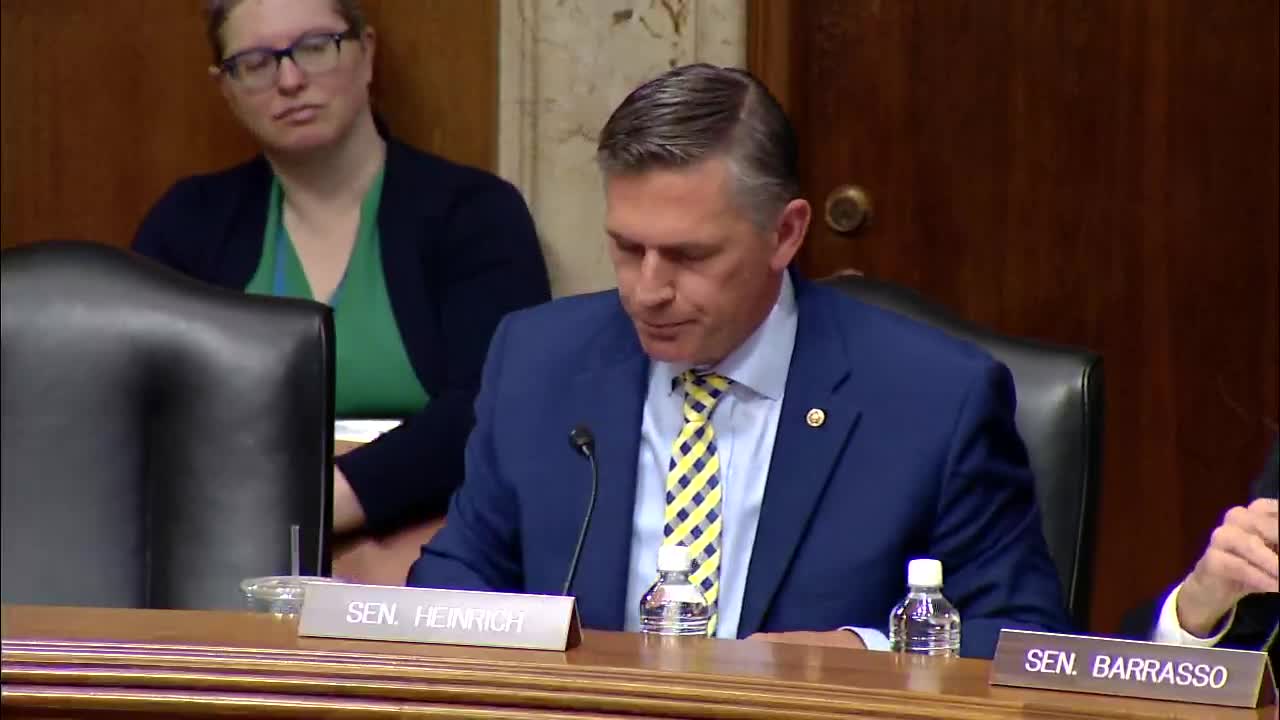BLM faces backlash over controversial land management policies
June 13, 2024 | Energy and Natural Resources: Senate Committee, Standing Committees - House & Senate, Congressional Hearings Compilation

This article was created by AI summarizing key points discussed. AI makes mistakes, so for full details and context, please refer to the video of the full meeting. Please report any errors so we can fix them. Report an error »

In a recent government meeting, significant tensions emerged regarding the Bureau of Land Management's (BLM) proposed Rock Springs resource management plan, which has drawn strong opposition from Wyoming officials and local communities. Critics, including state legislators and the governor, argue that the plan threatens to restrict access to millions of acres of land crucial for the state's economy and livelihoods. They expressed frustration over what they perceive as a lack of responsiveness from the BLM to their concerns.
The BLM defended its approach, highlighting that a public comment period was extended and that they have engaged with local stakeholders to incorporate their feedback into the final plan. However, skepticism remains among Wyoming officials, who are calling for a reversal of the plan, particularly in light of recent decisions to prohibit coal leasing in the Powder River Basin. The BLM stated that this move aligns with the federal government's transition to a clean energy economy, despite concerns that it could jeopardize coal production in a region that supplies a significant portion of the nation's coal.
Further complicating the discussion, lawmakers criticized the BLM's recent rule changes that significantly increase bonding requirements for oil and gas producers, arguing that these measures could drive businesses away from federal lands. The BLM justified the changes by citing outdated bonding rates and the need to address the issue of abandoned wells.
Additionally, the meeting touched on the management of the greater sage grouse habitat in Wyoming, with officials expressing concern that the BLM's plans could undermine the state's successful conservation efforts. The BLM, however, asserted that it has been collaborating closely with Wyoming to develop effective management strategies.
In Nevada, discussions centered on the modernization of resource management plans, with state officials advocating for a comprehensive, science-based approach to land management that accommodates various stakeholders. The BLM acknowledged the importance of aligning national rules with local needs and expressed commitment to advancing these initiatives.
Overall, the meeting underscored the ongoing conflict between federal land management policies and state interests, particularly in the context of energy production and environmental conservation. As the BLM moves forward with its plans, the implications for local economies and ecosystems remain a contentious issue.
The BLM defended its approach, highlighting that a public comment period was extended and that they have engaged with local stakeholders to incorporate their feedback into the final plan. However, skepticism remains among Wyoming officials, who are calling for a reversal of the plan, particularly in light of recent decisions to prohibit coal leasing in the Powder River Basin. The BLM stated that this move aligns with the federal government's transition to a clean energy economy, despite concerns that it could jeopardize coal production in a region that supplies a significant portion of the nation's coal.
Further complicating the discussion, lawmakers criticized the BLM's recent rule changes that significantly increase bonding requirements for oil and gas producers, arguing that these measures could drive businesses away from federal lands. The BLM justified the changes by citing outdated bonding rates and the need to address the issue of abandoned wells.
Additionally, the meeting touched on the management of the greater sage grouse habitat in Wyoming, with officials expressing concern that the BLM's plans could undermine the state's successful conservation efforts. The BLM, however, asserted that it has been collaborating closely with Wyoming to develop effective management strategies.
In Nevada, discussions centered on the modernization of resource management plans, with state officials advocating for a comprehensive, science-based approach to land management that accommodates various stakeholders. The BLM acknowledged the importance of aligning national rules with local needs and expressed commitment to advancing these initiatives.
Overall, the meeting underscored the ongoing conflict between federal land management policies and state interests, particularly in the context of energy production and environmental conservation. As the BLM moves forward with its plans, the implications for local economies and ecosystems remain a contentious issue.
View full meeting
This article is based on a recent meeting—watch the full video and explore the complete transcript for deeper insights into the discussion.
View full meeting